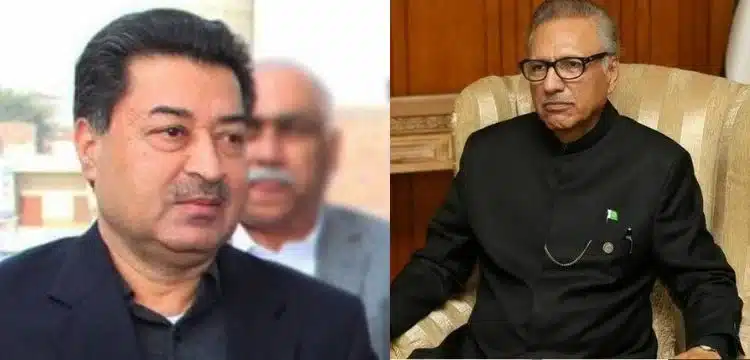[vc_row][vc_column][vc_column_text dp_text_size=”size-4″]President Dr Arif Alvi called Chief Election Commissioner (CEC) Sikandar Sultan Raja to a meeting in two days to “fix an appropriate date” for general elections.
The president emphasized the CEC’s duty to “appoint a date, no later than ninety days from the date of dissolution, for the holding of a general election to the Assembly,” as required by the Constitution in a letter shared on social media by the president’s office.
On August 9, the National Assembly was dissolved on the suggestion of then-Prime Minister Shehbaz Sharif, according to the letter.
صدر مملکت ڈاکٹر عارف علوی کا چیف الیکشن کمشنر، سکندر سلطان راجہ، کو خط
صدر مملکت نے جنرل الیکشن کی تاریخ کا فیصلہ کرنے کیلئے چیف الیکشن کمشنر کو آج یا کل مُلاقات کی دعوت دے دی
صدر مملکت نے 09.08.2023 کو وزیر اعظم کے مشورے پر قومی اسمبلی کو تحلیل کیا، صدر کے خط کا متن pic.twitter.com/JpRXqcnHsw
— The President of Pakistan (@PresOfPakistan) August 23, 2023
As a result, the president requested that the CC meet with him “today or tomorrow [Wednesday or Thursday] to fix an appropriate date” for elections.
The president’s invitation follows concerns over a possible election postponement after the Election Commission of Pakistan (ECP) decided to announce new constituency delimitation.
Also Read: Census Approval Sparks Concerns Over Election Timing
It should be remembered that President Alvi and the ECP have previously clashed over the legal provisions governing election announcements.
Alvi had pressed the ECP to hold polls for the provincial assembly of Punjab and Khyber-Pakhtunkhwa in February, unilaterally declaring the date of the vote as April 9.
The statement came after Alvi summoned the CEC for a “urgent meeting” to discuss the dates for the elections in K-P and Punjab. The ECP, on the other hand, had declined to meet with the president.
Later, the ECP acknowledged in a letter from ECP Secretary Omar Hamid Khan that it would be unable to participate in a consultative session with the president over election dates because the topic was already being litigated in court.
According to Article 218(3) of the Constitution, it is the election commission’s constitutional duty to organize and conduct elections.
According to the CEC, “the office of the president is the highest constitutional body, and the president is the head of the state, whereas all other constitutional and legal bodies are under constitutional obligation to show the president the utmost respect.”
“We are confident that it is impartial, and we look forward to paternal guidance from this prestigious office towards other constitutional bodies.”
In its answer to the president’s invitation, the ECP stated that it follows the constitution and the law and that its role is to conduct elections, whereas the president and governors are in charge of declaring election dates.
“The Election Commission is fully aware of its constitutional obligations to organize and conduct the election and has taken all necessary steps.” It is worth noting that the roles of the president and the governor of a province are explicitly stated in Articles 48(5) and 105(3) of the Constitution, respectively.”
It had also stated that the Constitution does not give the electoral watchdog the authority to set a date for a general election to an assembly in the event of dissolution.[/vc_column_text][/vc_column][/vc_row]











